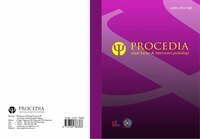Self–help group untuk menurunkan stres mahasiswa tingkat akhir
DOI:
https://doi.org/10.22219/procedia.v10i2.18967Keywords:
coping, group, self-help group, stressAbstract
Stress is an individual's perception of stressors and how individuals respond to stressors as indicated by their physical, cognitive, emotional, and behavioral reactions. The subjects in this study were final year students who were working on a thesis. They are demanded by their families to graduate immediately which makes them stressed. The assessment methods used are interview, observation and Perceived Stress Scale (PSS). The intervention used was a self-help group consisting of six sessions and carried out in groups. The target of the intervention is to reduce the stress level of the subject. The results of the intervention showed that the stress level of the subject before the intervention was in the high category decrease in the medium-low category. This shows that the support among group members obtained from self-help groups can help the subjects find appropriate coping strategies to deal with their stress.
Downloads
References
Ambarwati, P. D., Pinilih, S. S., & Astuti, R. T. (2019). Gambaran tingkat stres mahasiswa. Jurnal Keperawatan Jiwa, 5(1), 40. https://doi.org/10.26714/jkj.5.1.2017.40-47
Aula, N. A. L., & Leonardi, T. (2017). Hubungan antara academic stress dengan problematic internet use pada mahasiswa di Surabaya. Jurnal Psikologi Pendidikan Dan Perkembangan, 6, 67–76.
Barlett, D. (1998). Stress: Perspectives and processes. Open University Press.
Coote, H. M. J., & Macleod, A. K. (2012). A self-help, positive goal-focused intervention to increase well-being in people with depression. Clinical Psychology and Psychotherapy, 19, 305–315. https://doi.org/10.1002/cpp.1797
Humphreys, K., & Ribisl, K. M. (1999). The case for a partnership with self-help groups. Public Health Reports, 114(4), 322–329. https://doi.org/10.1093/phr/114.4.322
Julianto, E. K. (2019). Self-help group analysis of self esteem and stress levels in families with patients with depression. Journal for Quality in Public Health, 3(1), 1–9. https://doi.org/10.30994/jqph.v3i1.41
Koochaki, G. M., Charkazi, A., Hasanzadeh, A., Saedani, M., Qorbani, M., & Marjani, A. (2011). Prevalence of stress among Iranian medical students: A questionnaire survey. Eastern Mediterranean Health Journal, 17(7), 593–598. https://doi.org/10.26719/2011.17.7.593
Matcham, F., Rayner, L., Hutton, J., Monk, A., Steel, C., & Hotopf, M. (2014). Clinical psychology review self-help interventions for symptoms of depression, anxiety and psychological distress in patients with physical illnesses: A systematic review and meta-analysis. Clinical Psychology Review, 34(2), 141–157. https://doi.org/10.1016/j.cpr.2014.01.005
Nevid, J. S., Rathus, S. A., & Greene, B. (2014). Psikologi Abnormal di Dunia yang Terus Berubah, Jilid 1 (9th ed.). Jakarta: Erlangga.
Purnomo, Dwidiyanti, M., Yuli, D., & Indra, R. (2018). Effects of self-help group on stress level in adolescents. Proceeding, 2(2), 599–602.
Sarafino, E., & Smith, T. (2011). Health Psychology: Biopsychosocial Interactions Ed. 7th. New Jersey: John Wiley & Sons, Ltd.
Sheu, S., Lin, H. S., & Hwang, S. L. (2002). Perceived stress and physio-psycho-social status of nursing students during their initial period of clinical practice: The effect of coping behaviors. International Journal of Nursing Studies, 39(2), 165–175. https://doi.org/10.1016/S0020-7489(01)00016-5
Wilks, S. E. (2008). Resilience amid academic stress: The moderating impact of social support among social work students. Advances in Social Work, 9(2), 106–125. https://doi.org/10.18060/51
Downloads
Published
How to Cite
Issue
Section
License
Copyright (c) 2022 Tutut Ananda Widya Putri

This work is licensed under a Creative Commons Attribution-NonCommercial 4.0 International License.






